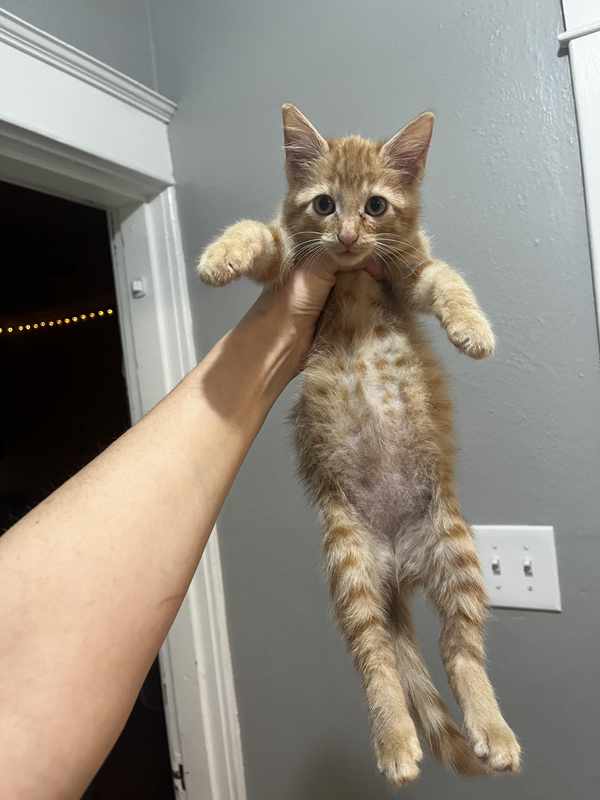The world of kitten parenting is filled with joys and challenges, but one issue that can cause concern for many cat lovers is belly bloat. The adorable little balls of fluff that bring so much happiness to our lives can sometimes become bloated, leaving their human caregivers feeling worried and unsure of what to do.
Belly Bloat in Kittens: What’s Behind This Unwanted Distraction?
As a responsible kitten parent, it’s essential to understand the reasons behind belly bloat in kittens. In this blog post, we’ll delve into the causes, symptoms, and solutions to help you provide the best possible care for your little furball.
What is Belly Bloat in Kittens?
Belly bloat, also known as gastrointestinal distension or digestive discomfort, occurs when a kitten’s stomach becomes swollen due to gas or fluid accumulation. This condition can be caused by various factors, including diet, stress, and underlying health issues.

The world of kitten parenting is filled with joys and challenges, but one issue that can cause concern for many cat lovers is belly bloat. The adorable little balls of fluff that bring so much happiness to our lives can sometimes become bloated, leaving their human caregivers feeling worried and unsure of what to do.
Belly Bloat in Kittens: What’s Behind This Unwanted Distraction?
As a responsible kitten parent, it’s essential to understand the reasons behind belly bloat in kittens. In this blog post, we’ll delve into the causes, symptoms, and solutions to help you provide the best possible care for your little furball.
What is Belly Bloat in Kittens?
Belly bloat, also known as gastrointestinal distension or digestive discomfort, occurs when a kitten’s stomach becomes swollen due to gas or fluid accumulation. This condition can be caused by various factors, including diet, stress, and underlying health issues.
Common Causes of Belly Bloat in Kittens
Kittens can develop belly bloat due to several reasons:
- Diet: Feeding kittens too much or too little food can lead to digestive upset, causing their stomachs to become bloated.
- Stress: Changes in environment, introduction of new pets or people, and lack of social interaction can cause kittens to experience stress, leading to belly bloat.
- Underlying Health Issues: Kitten parents should be aware that certain health issues, such as gastrointestinal infections or inflammatory bowel disease, can also contribute to belly bloat in kittens.
Symptoms of Belly Bloat in Kittens
Kittens with belly bloat may exhibit the following symptoms:
- Swollen abdomen
- Vomiting or regurgitation
- Diarrhea or constipation
- Lack of appetite
- Persistent whining or crying
How to Manage Belly Bloat in Kittens
As a kitten parent, it’s essential to monitor your little one’s behavior and physical condition. If you suspect belly bloat, consult with your veterinarian for proper guidance. In the meantime, here are some general tips to help manage belly bloat:
- Feed a high-quality, easily digestible diet
- Monitor food intake and avoid overfeeding or underfeeding
- Provide plenty of fresh water and encourage drinking
- Offer probiotics to support gut health
- Minimize stress by maintaining a calm environment
Remember, if you’re concerned about your kitten’s belly bloat or notice any severe symptoms, it’s always best to consult with your veterinarian for personalized advice. By staying informed and taking proactive steps, you can help keep your kitten happy and healthy.
Next Steps: Understanding the Importance of Preventive Care
In our next section, we’ll dive into the importance of preventive care in maintaining a healthy kitten. From scheduling regular check-ups to keeping those whiskers clean, we’ll cover it all!
Expert Consultation for Your Kitten’s Health
Get expert advice on how to address belly bloat in your kitten. Our medical and health experts are here to help.
Get Expert AdviceIn our previous section, we explored the concept of belly bloat in kittens, what causes it, and how to identify its symptoms.
Summarizing the Key Points
To recap, belly bloat in kittens is characterized by stomach swelling due to gas or fluid accumulation. This condition can be triggered by factors such as diet changes, stress, and underlying health issues. Common symptoms include lethargy, loss of appetite, and discomfort.
Final Insights
As a kitten parent, it’s crucial to maintain open communication with your veterinarian to rule out any potential underlying health concerns. Additionally, making dietary adjustments, such as introducing canned food or probiotics, can help alleviate symptoms and prevent future occurrences.
A Strong Conclusion: Empowering Kitten Parents
By understanding the causes and symptoms of belly bloat in kittens, you’re now equipped to provide expert care for your little bundle of joy. Remember, early detection and prompt intervention are key to resolving this issue and ensuring a happy and healthy kittenhood. With patience, vigilance, and the right guidance, you’ll be well on your way to raising a confident, thriving feline companion.
Amazon Kindle Paperwhite 6-Inch Wi-Fi Wi-Fi Price Tracker: Stay ahead of the curve with our comprehensive price tracker for the Amazon Kindle Paperwhite. Get real-time updates on prices and learn how to snag the best deals.
What is 1 Bilirubin in Dog Urine? A Comprehensive Guide: Confused about your dog’s urine test results? Dive into our comprehensive guide to learn what 1 bilirubin in dog urine means and how it can affect your furry friend.




